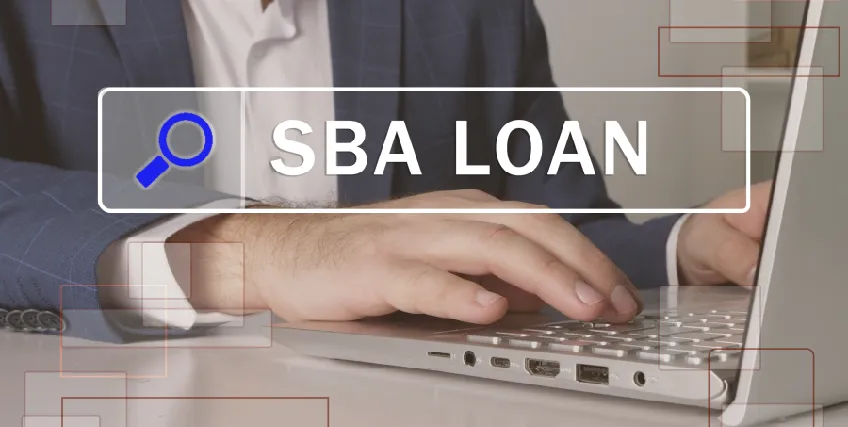Looking for Business Financing?
Apply now for flexible business financing. Biz2Credit offers term loans, revenue-based financing, lines of credit, and commercial real estate loans to qualified businesses.
Set up a Biz2Credit account and apply for business financing.
Everything you need to know to get the right business financing to buy a company.
Are you thinking about purchasing a business?
It can be an expensive thing to do, and most entrepreneurs don’t have the cash on hand to buy an existing business, even if it’s a relatively small one. Perspective business owners often have to get a small business acquisition loan to complete the deal.
This article will explain what you need to know to get the right small business loan to purchase an existing company.
Business acquisition loans: The basics
Most business acquisition loans are term loans. You receive a lump sum of cash to buy a business and pay it back, with interest, over a defined period. The amount of funding you qualify for, interest rates, and repayment terms vary based on the borrower's creditworthiness and the type of lender.
Lenders also typically rely on a business valuation which is a professional evaluation of the the value of the company you want to buy along with other factors to figure out how much they will lend you.
Lenders will not fund an entire business acquisition. They will only loan you a percentage of the purchase price. You will have to put up a part of the cost of the business as a down payment. Down payments on business acquisition loans typically range from 10 to 30 percent depending on the type of financing, lender, the company you’re buying, and your credit score.
You may be required to put up collateral to back the loan. In some cases, assets from the company you want to purchase can collateralize the loan.
Cash from a term loan can be used to cover working capital and other requirements for purchasing and running a business.
Business acquisition loan options and providers
Several types of lenders offer business acquisition loans.
Banks and credit unions
Banks and credit unions offer acquisition loans with relatively low-interest rates and favorable loan terms. Loan applicants must have good credit scores (typically over 700) to qualify for financing from traditional financial institutions. They also usually require that borrowers buying companies have significant business experience. Be aware that the loan application and approval process with most banks and credit unions can take a long time. If you need fast financing to buy a business, traditional lenders are probably unsuitable.
Be aware that startup acquisitions normally don't get funding from traditional lenders. You will likely need to turn to an online loan company.
Not all banks or credit unions require borrowers to put up business or personal collateral, but this type of security allows you to borrow more at lower interest rates.

Tip
It's typically easier to qualify for a traditional bank loan from a local or regional bank than a national one. Many make it their mission to support local companies.
U.S. Small Business Administration (SBA) approved lenders
SBA loans, including the popular SBA 7(a) loan program, are offered by lenders affiliated with the Small Business Administration. The SBA partially guarantees them. These loans have flexible terms, low-interest rates, and most types can be used for business acquisition. Much like loans from a traditional lender, SBA loans have strict requirements, and it can take a month or more to get funding.
To qualify for an SBA loan , you must purchase a solid business with good cash flow and annual revenue. Borrowers must have a personal credit score of 690 or higher. Those with bad credit won't qualify. You’ll also likely need to provide a down payment of at least ten percent of the total loan amount. Sometimes, collateral is required to qualify for an SBA loan despite the guarantee.
Online lenders
If you need fast business acquisition funding — or don’t qualify for a bank or SBA loan — working with an online lender could be a good solution for you.
Online lenders typically have less stringent approval requirements than banks and credit unions. You may be able to qualify for a business loan with a credit score in the mid-600s. Loans from online lenders typically come with higher interest rates and shorter terms than those from traditional financial institutions because of the easier approval requirements.
If you need financing fast, online loans are often approved in one day, and money can be deposited electronically into your business bank account the next business day.
Alternative business acquisition financing options
If you’re buying a business, you may have funding options beyond term loans, including:
-
Equipment financing. – If your business requires purchasing equipment, you might use an equipment loan to finance it. It is usually easy to qualify for an equipment loan because the equipment is the collateral used to back it. Be aware that if you fail to make your loan payments on time, you could lose the equipment you depend on to run your business.
-
Seller financing. – A business line of credit works like a credit line you’d have on your home. You have access to funding when you need it, and you only have to pay it back when you borrow funds. While this option isn’t suitable for funding an entire business acquisition, it can help cover unexpected expenses once you start operating the business.
-
Business line of credit. – A business line of credit works like a credit line you’d have on your home. You have access to funding when you need it, and you only have to pay it back when you borrow funds. While this option isn’t suitable for funding an entire business acquisition, it can help cover unexpected expenses once you start operating the business.
-
Business credit card. Like a business credit line, a business credit card isn’t suitable for funding an entire business purchase. However, it’s excellent for covering everyday business expenses. It also allows you to separate out your business purchases from personal ones, which makes bookkeeping, accounting, and tax preparation simpler.
Getting a business acquisition loan
Different types of lenders have different loan eligibility requirements. However, they typically consider similar things when deciding to underwrite a loan, including the type of business, value of the company you want to buy, its cash flow, and annual revenue. They also take into account the down payment you can provide, your business plan and financial projections for the acquisition, as well as your experience in the industry. They also look at your personal credit score and overall credit history. Putting up business collateral or offering a personal guarantee can positively impact qualifying for financing.
As part of the application process, you’ll need to provide financial documents, including:
-
Cash flow statements for the business you want to buy
-
Profit and loss statements
-
Balance sheets
-
Financial statements
-
Tax returns
-
Business and personal bank statements
-
A business plan for the new acquisition
-
Post-purchase sales projections
-
Proof of collateral
-
Proof that you can cover the down payment
-
An independent professional valuation of the company you’re purchasing
-
A letter of intent with the terms of sale of the business.
Having this paperwork available will make the loan application and approval process much faster.

Tip
Consider working with a business accountant and attorney experienced in small business acquisitions to assist you with the loan application and approval process. They can help you evaluate all the costs related to buying a business, perform a business valuation, draft essential documents related to the acquisition, and negotiate for you.
Calculating business valuation
The value of the business you’re purchasing is a critical consideration when you’re applying for an acquisition loan. There are three primary ways business valuations are calculated. Understanding them is essential, so you select the right one for your situation.
-
A market-based valuation compares the business you want to buy with other similar companies in its industry. This approach is best when services, prices, and operations are relatively standard across an industry. An apples-to-apples comparison helps purchasers and lenders understand how a business compares with others in its industry.
-
An asset-based valuation looks at the net worth of a business’s assets, including its property, equipment, tools, and inventory. A restaurant, for example, may have costly kitchen appliances; dishes, glassware, and cutlery; tables and chairs; and wine and liquor. This approach can help the lender determine their risk in lending you and your business money.
-
An income-based valuation is based on how much cash flow the acquired business is expected to generate in the future. While this is impossible to know for sure, a solid financial history with an upward projection for revenue is a good sign for lenders. This method is ideal for companies with reliable track records that can be expected to continue to grow well into the future.
Working with prospective lenders to determine the best valuation method for your business type will help ensure you’ll get your loan approved quickly.
Choosing the right business acquisition loan
As I’ve already covered, there are numerous financing options to choose from — along with loan providers — when you’re considering acquiring a business.
When evaluating your loan offers, consider all the factors involved, including the type of loan, loan repayment terms, fund use restrictions, monthly payments, annual percentage rate, and more. You want to ensure that the financing works for you and that you will be able to pay it back. If you have any doubts, consult with an accountant or other financial advisor who has experience in business acquisitions to explore your options with you.
FAQs on Term Loan
How to get a business acquisition loan?
If you are looking for the best business loans, you need the following things,
- A solid outline of your business plan and its financial projections
- A strong financial backup of your business to show your ability to repay the loan
- Collaterals to offer assets such as properties or any equipment to get the loan
- Your commitment to your assets to back the loan
What is a business acquisition loan?
A business acquisition loan is a comprehensive financial solution that can be used for buying an existing business, parts of one, or purchasing assets from a different company. It provides coverage for both tangible assets, such as equipment and real estate, and intangible assets, like trademarks and client lists. Traditional banks, credit unions, and online lenders can offer business acquisition loans.
How does an acquisition loan work?
An acquisition loan is given to a company for purchasing a particular asset, securing another business, or for any other reason that comes up before the loan is passed. Ideally, a company can only use the loan for a shorter duration, which is also for the purpose for which it gets the approval.
Which loan is used for acquisition?
Acquisition is a business strategy where one company takes control of another, which is done through asset purchase or merger. Acquisition strategies play a crucial role in achieving business objectives. The choice between asset purchase and merger is influenced by factors such as financial health, control, and potential synergies. These strategies can be driven by various business objectives, including market expansion, increased market share, new technologies, or cost reduction.
How quickly do you have to pay back a business loan?
If it's a short-term loan, it ideally requires repayment within the span of 12 to 18 months, although intermediate-term loans stretch from one to three years. Moreover, the repayment duration for long-term loans is three to twenty-five years. When it comes to private term loan providers, small businesses can gain the most from SBG funding and the flexible loan payment terms.
How are business loans secured?
Business loans are secured by collateral, an asset the lender can seize if the borrower defaults on the loan. These collaterals comprise cash, inventory, equipment, investments, bonds, real estate, and deposit certificates. Secured loans are easier to get than unsecured ones. It may also have lower interest rates with better financing terms. It is because the lender guarantees a way to get their money back if the borrower is unable to repay.
How do secured business loans work?
A secured business loan provides a lump sum of money but requires the borrower to exchange an asset as collateral. This security measure ensures that if the company defaults on the loan, the lender can seize the asset to recover their funds, reassuring them. This type of financing is ideal for businesses that require substantial capital but face challenges like a lower credit score. Secured loans offer a higher chance of approval than unsecured loans, making them a popular choice for various business ventures.




